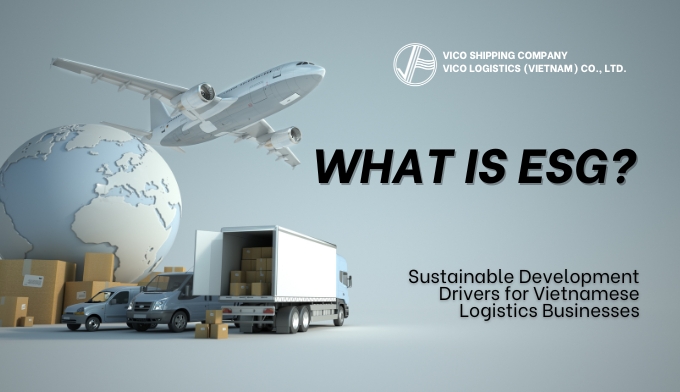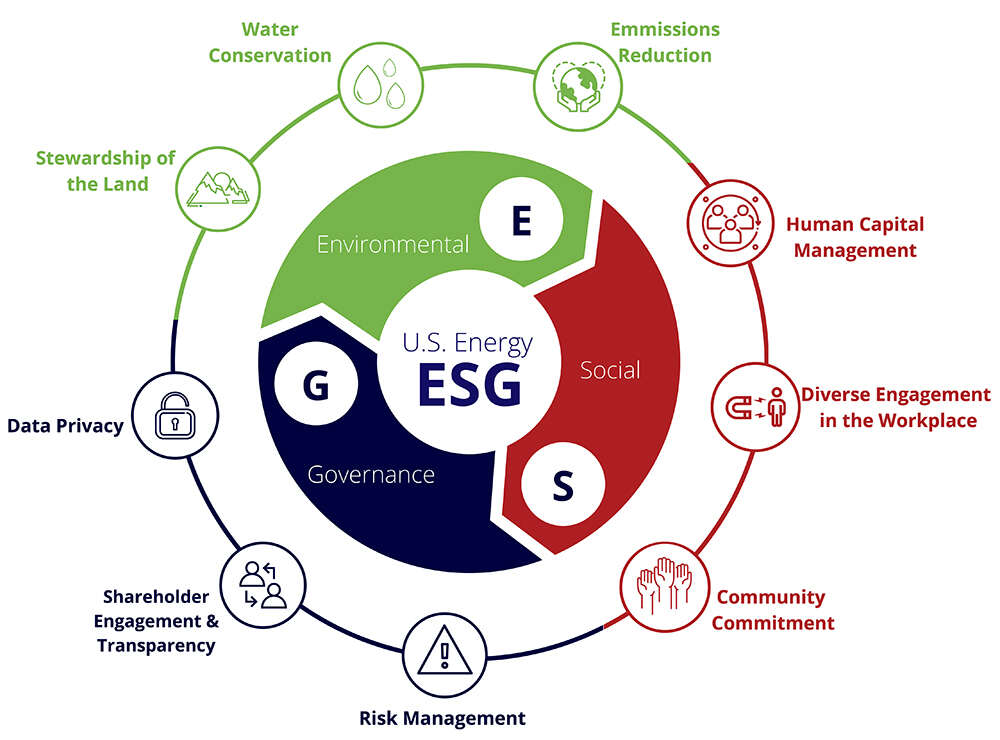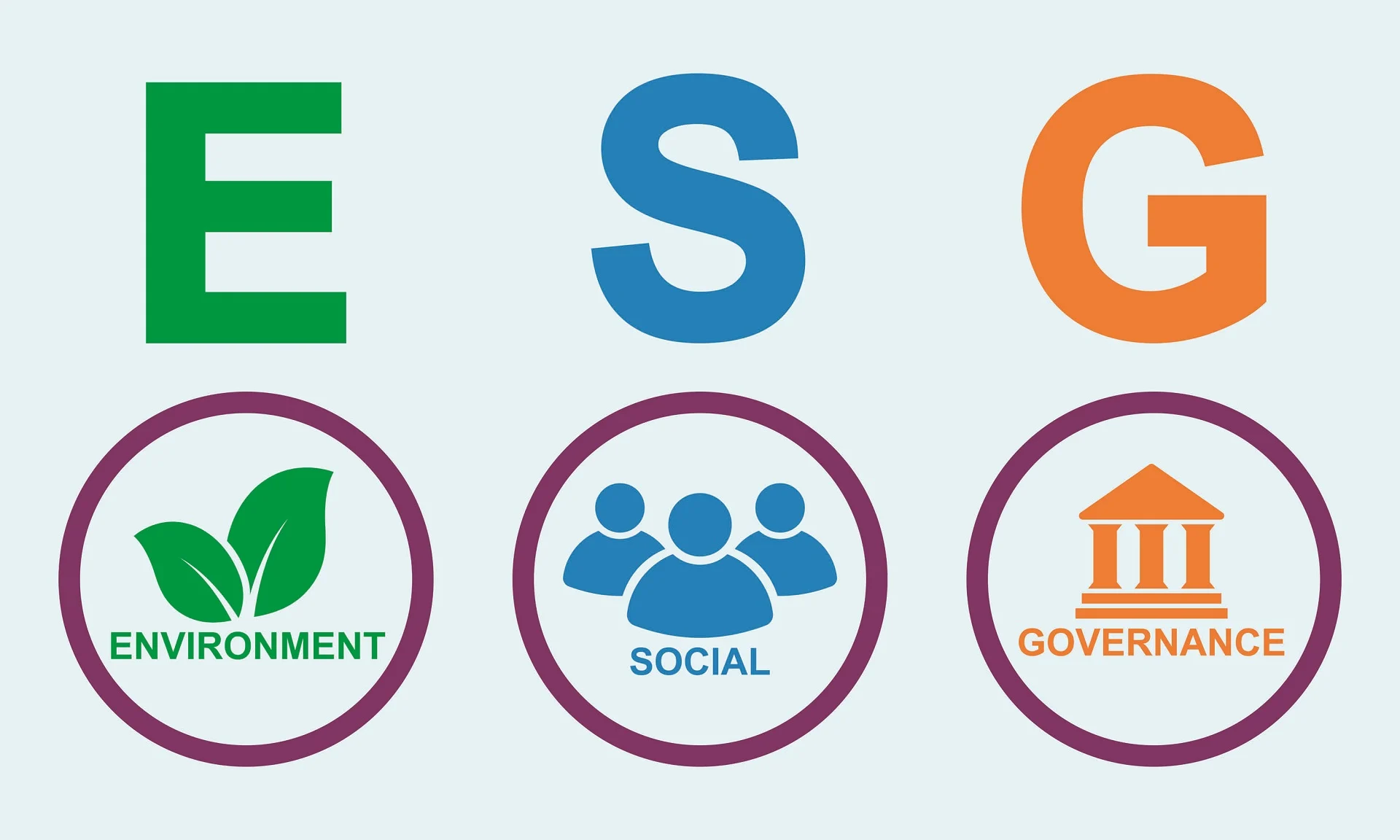
ESG, or Environmental, Social, and Governance, plays a pivotal role in the development of sustainable businesses in Vietnam, particularly within the logistics industry. ESG goes beyond being a mere sustainable concept; it is a vital standard that helps businesses achieve sustainable growth, attract partners and investors, and expand their market presence. Let's explore the significance of implementing ESG and its positive impact on society and the environment.
1. Understanding ESG and Its Significance
1.1. Defining ESG:
ESG encompasses three critical factors, namely Environmental, Social, and Governance, used to measure the effectiveness and sustainability of businesses. These factors have become essential trends in the business and investment world, demanding that businesses manage their impact on the natural environment, communities, and shareholders.
>> Improved Vietnam infrastructure plan to support ongoing economic growth
1.2. The Importance of ESG for Businesses and Communities:
ESG is not just a passing trend; it is a core element to assess sustainability and efficiency in today's business landscape. Companies understand that implementing ESG not only improves their reputation and credibility but also brings forth numerous essential benefits, including:
Attracting Investors: Investors are increasingly interested in businesses committed to sustainability and good ESG practices. Implementing ESG effectively helps attract capital and financial support from investors who prioritize responsible investments that positively impact communities and the environment.
Gaining Competitive Advantage: Businesses consistent in implementing ESG can gain a competitive edge in the market. Customers and consumers are actively seeking products and services with positive social and environmental impacts, making them more willing to support companies with such commitments.
Ensuring Sustainability: ESG ensures the long-term sustainability and existence of a business. By managing environmental and social risks effectively, businesses can minimize negative impacts while enhancing their ability to adapt to the ever-changing business landscape.
2. The Key Components of ESG

2.1. The Environmental Factor (Environment):
The environmental factor focuses on evaluating a business's impact on the natural environment through its operations. Companies can adopt practices such as energy conservation, waste recycling, and investment in environmental and biodiversity protection projects.
2.2. The Social Factor (Social):
The social factor assesses a business's impact on society and the community. This includes managing relationships with employees, customers, local communities, and other stakeholders. Key aspects involve fair personnel management, ensuring safe and quality work conditions, and supporting social activities in the community.
2.3. The Governance Factor (Governance):
Governance refers to the transparency and effectiveness of a company's leadership structure, ethical decision-making, and internal controls. Establishing robust governance systems is crucial to a company's success and sustainability. Good governance fosters transparency and trust, attracting trust and confidence from investors. It also helps manage financial, environmental, and social risks, minimizing negative impacts and ensuring sustainable business operations.
3. ESG and Vietnam's Businesses
Vietnam's businesses, including those in the logistics sector, are increasingly recognizing the importance of ESG practices. Implementing ESG is vital for Vietnamese businesses, enabling them to participate in large and international markets where sustainability and social responsibility are increasingly emphasized.
4. The Relevance of ESG for Logistics Companies
For logistics companies like VICO Logistics, practicing ESG is especially crucial when aiming to integrate and compete in larger markets. Such markets demand high sustainability and social responsibility standards. By adhering to ESG principles, logistics companies can:
1. Meet Partner Requirements: Implementing ESG helps logistics companies meet the sustainable standards set by partners and customers in large markets. Complying with ESG principles fosters trust and confidence, leading to more collaboration and additional orders from these markets.
2. Attract Investors and Investment: ESG implementation attracts the interest of investors who prioritize sustainable and socially responsible initiatives. For logistics companies, this translates to increased investment and business expansion in larger markets.

Conclusion:
ESG is a crucial concept for sustainable business in Vietnam, including the logistics sector. Embracing ESG enables companies to participate in large and international markets that emphasize sustainability and social responsibility. By adhering to ESG principles, logistics companies like VICO Logistics can achieve a competitive advantage, attract investors and partners, and create sustainable value for society and the environment.
Explore more VICO Logistics services to support your business here.
---------------
VICO LOGISTICS – Indochina Logistics Expert
Premium member of Eurocham, JCtrans, Ziegler One, VLA, VCCI,... associations
Owned offices: Hong Kong (headquarter), China (Shenzhen, Shanghai), Vietnam (Ho Chi Minh, Da Nang, Hai Phong).
Follow us for more valuable information
Book now: https://vico.com.hk/#quotation
Contact us: mkt4_hcm@vico.com.hk (For business development)






